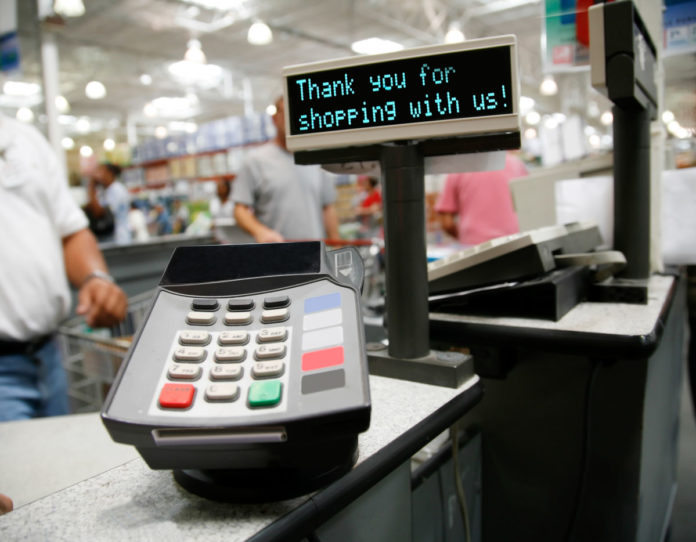
ISLAMABAD: The Federal Board of Revenue (FBR) has decided to extend electronic Point of Sale (EPOS) to chain retail stores and shopping malls.
According to sources, the tax department has informed the International Monetary Fund (IMF) that the government will extend the EPOS to retail chain stores and shopping malls till March 2019.
The purpose of extending EPOS to the aforementioned retailers is to obtain real-time sales data.
Earlier, the department was monitoring the retail sale of garments and leather products.
The officials said the department had introduced this system in June this year and initially the department had given five months till November 21, 2018 to avail this facility, however, the date had been extended to December 21, 2018 for registered persons.
Under this facility, FBR had announced to reduce the rate of nine percent on import of finished goods of leather and artificial leather for the general public.
In the SRO 1125(I)/2011, the government had introduced a uniform rate of 5 percent sales tax for those registered people who are solely or otherwise engaged in the retail business of these goods or products and adding value on their retail sales.
Sources said that the purpose of extending EPoS is to enhance the revenue collection since the FBR faced a Rs104 billion shortfall during the first five months (July-November) of the current fiscal year 2018-19 and most of these individuals are not registered with tax department.
It is notable to mention here that FBR has set Rs4,398 billion, 11.3 percent of GDP tax collection target for fiscal year 2018-19.
However, sources said that government has informed the IMF that the achievement of the assigned budget target will require an upward increase in petroleum sales tax and revision of rates of non-corporate tax payers which were drastically reduced in the Finance Act 2018.
Sources said that there is a dire need of additional revenue measures of 0.3 percent of GDP.
Hence the FBR will increase the sales tax on petroleum products, federal excise duty (FED) on beverages, cigarettes, telecom services and local/imported vehicles.
And higher sales tax rates on domestic sales by export-oriented segment and increase in the rate of withholding tax on import of finished goods are also on the cards.
Additionally, increased inflation and exchange rate adjustments are likely to have positive impact on tax revenue collection.
Furthermore, the government shared with the IMF that apart from all these measures, tax department would enable legal provisions in the existing laws to augment enforcement efforts by the field officers and effective monitoring of their efforts.






